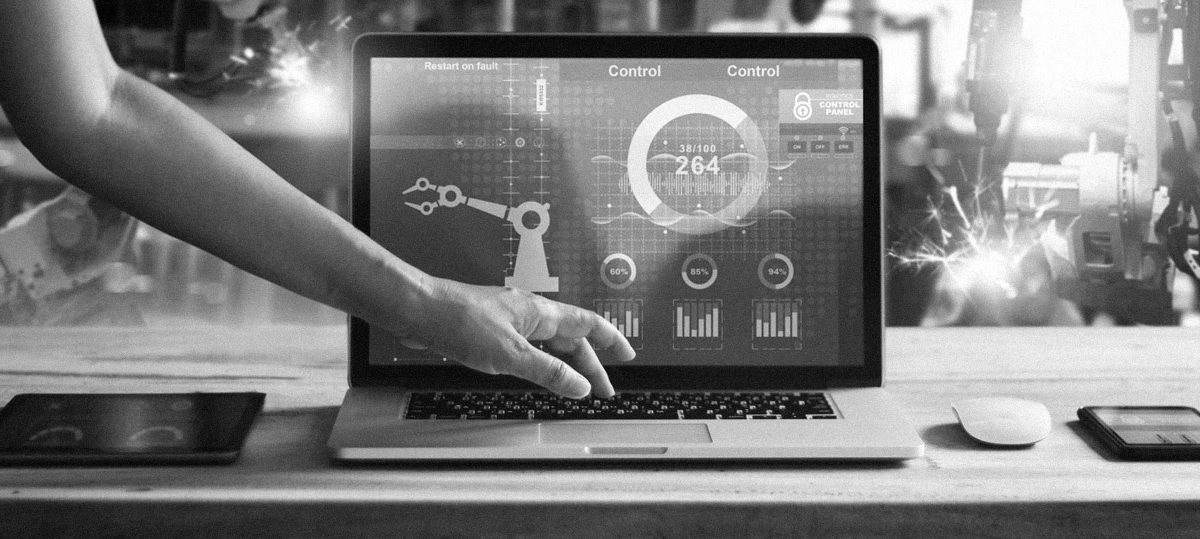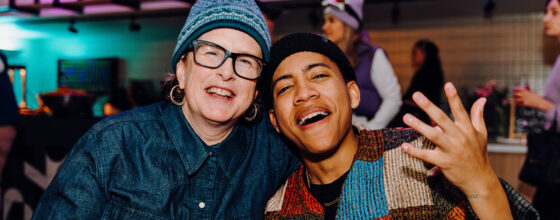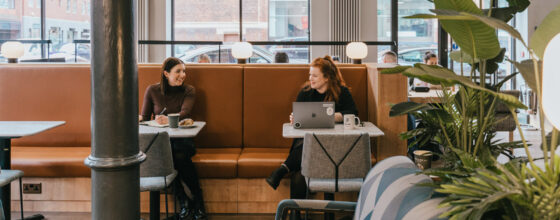Proptech, AI and the Future of the Workspace Sector: a Q&A with Antony Slumbers

by Cat Johnson
Editor’s note: This is part one of a two-part interview series with proptech expert Antony Slumbers, originally posted on uk.gcuc.co.
 A leader in the proptech sector, as well as an expert on AI, innovation and the future of work, Antony Slumbers is a celebrated, international speaker. The keynote presenter at the upcoming GCUC UK coworking conference in London, Slumbers was kind enough to chat with me about the future of tech as it relates to the workspace industry.
A leader in the proptech sector, as well as an expert on AI, innovation and the future of work, Antony Slumbers is a celebrated, international speaker. The keynote presenter at the upcoming GCUC UK coworking conference in London, Slumbers was kind enough to chat with me about the future of tech as it relates to the workspace industry.
We touched on the evolving ethos and aesthetic of coworking, the automation of tasks rather than jobs, and how the way people work is becoming more human. Here are the highlights of our conversation.
Cat Johnson: I’m looking forward to your GCUC UK keynote, Antony. What workspace topics are you interested in talking about these days?
Antony Slumbers: I think the interesting thing today is that all of this has really tipped over into mainstream from niche. Even in just a year—certainly over the last couple of years—this whole space as a service world has gone from being interesting to young kids to pretty well everybody wondering what’s going on and what they need to do.
That’s a really interesting change, because once you get a certain amount of momentum then things really start happening. I see the essential aesthetic of coworking morphing into, and becoming, the norm. Not necessarily coworking itself, in the sense of you and I sitting at the same table and working for different companies, but the ethos about it, the flexibility about it, the openness, but also the feeling that we just have to be a bit more innovative than we’ve been historically.
We need to think about these things a lot more—we can’t just coast. The future is feeling less of an iteration of the past, than something quite new.
How do workspace technology and AI fit into this new workspace model?
I think it’s incredibly interesting to watch how the technology world, in terms of things like computer vision, and speech recognition, natural language processing, and all the AI stuff, is developing at such an incredible speed. So much of what we are used to doing as our tasks during the day is very rapidly getting taken over by the machines.
There’s a really interesting paradox about this highly technologically evolved world: it’s actually making people much more important—and it’s making offices more important.
It is odd, because in the same way as I don’t need a shop to go shopping, I do not need an office to do my work. But funny enough, offices are becoming more important. But they’re not becoming more important as they were, they’re becoming more important as places that actually catalyze human skills rather than places where you go to do highly technical things. The highly technical things are sort of being morphed off to being dealt with programmatically or automatically by machines, leaving us humans to do what humans are good at.
McKinsey has a report where they say 45% of all the tasks that people across the world are paid to do can be replicated by currently demonstrable technology. All of those tasks are things that are structured, repeatable, or predictable. Essentially, anything that can be turned into an algorithm is going to be. It’s only a matter of time.
What is really interesting is, before anything can be made structured, repeatable and predictable, it actually needs to be created in the first place. It needs to exist in the first place. Luckily for us, computers are really bad creation and humans are pretty damn good at it.
I see this movement to the work we actually do being really the big driver of all the change in the office. People talk a lot about how the way we work is changing, but that misses the point. The reason the way we work is changing is because the work we do is changing. The work we do is becoming more human. It’s becoming about design, imagination, social intelligence, judgement, empathy, collaboration. That’s what humans are doing.
So our workspaces need to support people in working in this more human way.
To enable people to do this work well, we need different types of spaces. And that is sort of coinciding with the aesthetic of coworking which, if you go back to when coworking started, it wasn’t started because of what I’m talking about now. None of that really existed. But, because technology is evolving, it’s actually changing the workplace into something that aesthetic suits much better. The whole notion of what real estate is about is increasingly less and less about real estate, and more and more about people.
Ultimately, we get into a situation—and I think this is actually being driven from the top down because they’re the companies that actually have the most expensive employees—where if you’ve got those really expensive employees, and you’re asking them to do advanced human skills, you sure as hell need to put them in a place that catalyzes and enables them to be as good as they can possibly be.
There’s great incentive for companies to support employees with more than just a desk and computer.
Your whole incentive for why you should pay a lot more attention to the workplace is partly to do with the fact that we’re doing different types of work so we need different types of environments. And it’s partly because in pure, Adam Smith economics, you’ve got all these really expensive people in expensive real estate and you need to make them as productive as possible.
So much about productivity is now based on our own cognitive functions, and cognitive performance rather than our computer. A lot of times, if you’re tapping away on Excel, Excel is actually doing the thinking. In this world, we need to do a lot more of the thinking. We’re doing all this human stuff, and we’re designing new products and services, so we need to be our best selves at peak performance to really excel in this new world. To do that means we need different types of spaces, with a different aesthetic, and a different focus on what is required to enable people to be as productive as possible.
If you go back 10 years, to make me as productive as possible you just give me a really good computer and preferably a good internet connection. But now you need to put me in a space that’s comfortable, that isn’t too hot or too cold, isn’t too noisy or not noisy enough, and has good air quality and good natural light. We know that those things do have a direct impact on cognitive function.
It’s definitely a different way of thinking from just putting people in cubicles.
Once you start thinking like this, it starts looking like it’s realistic to the pain. If you go 10 years out, will there be any space that isn’t run along these new lines, in terms of flexibility, activity-based working and a much larger concentration of whoever’s running the workplace understanding the jobs I have to do now and making sure I have the right environment to do?
Gensler, the architects, do these surveys each year about how much time is spent on focused work on how much on communal work. Year after year, it’s essentially 50 percent. I don’t know whether it’s just a built-in thing that humans can cope with doing human stuff half the time, and then we need to chill a bit. If you put someone trying to do focused work in a noisy office environment, you’re slashing their productivity. Whoever is looking after these workplaces needs to understand what people are trying to do, the jobs to be done, and then making sure they’ve got the right type of spaces for them.
As we see coworking becoming mainstream, and repeating tasks being automated, what do you see happening in the workforce at large? Do you see people whose jobs are being automated being pulled up into this new work of creating and designing in productive workplaces? Will everyone get to focus more on the creative side of work?
One would hope the answer is yes, but I’m not convinced the answer is yes.
Right, so what does that look like?
This is the bit that I have trouble with, with a lot of what I talk about. I increasingly add this caveat that I do wonder whether what I’m talking about is major cities, top end, central business district, best companies in best cities, and whether it will permeate out.
I was at a strategy session yesterday with a whole group of facilities managers. I was trying to tell them they need to do all this. At least half the feedback was that this is all very well, but the trouble is that their clients just want it cheap—that’s all they’re interested in.
I do worry that there are a lot of companies, and a lot of management, out there that think probably 80 percent of what I’ve been talking about is absolutely posh and that we’d really be much better if we just got on and did our work and stopped worrying about it.
This circles back to the automation tension—the machine task cost savings versus the human creativity element.
I’m a huge believer that the human plus the machine wins. It’s not going to be machines that win, and it’s not going to be humans that win. It’s going to be humans who know how to use technology to augment themselves that win. It’s not jobs that are going to be wiped out, it’s tasks. How many jobs might go? Probably, on the face of it, not that many. How many jobs are going to be transformed? Pretty well every job.
It’s going to be the difference between the type of company that uses, in particular, artificial intelligence, just to reduce costs. In my mind, that is actually a dead end. It will be a one time benefit. You’re reducing all this cost, but you’re not going anywhere. As opposed to thinking that you want to keep the same number of staff, but you want to make them 10 times more productive. I do worry about how many people are enlightened enough to be thinking of it like this.
This way of thinking is a big shift on a societal level.
It’s a big, big change. Artificial intelligence could be the worst thing to happen to us. Or it could be the best thing. It’s nothing to do with the technology, it’s going to be completely to do with how we as a society decide to utilize this type of technology. I don’t think there’s an easy answer. For a lot of ordinary people, all of this will be great. And for a lot of them it won’t.
Antony Slumbers is the keynote presenter at the upcoming GCUC UK coworking conference in London 23-24 September. Reserve your tickets now to learn more about workspace AI, proptech and the future of the industry.




